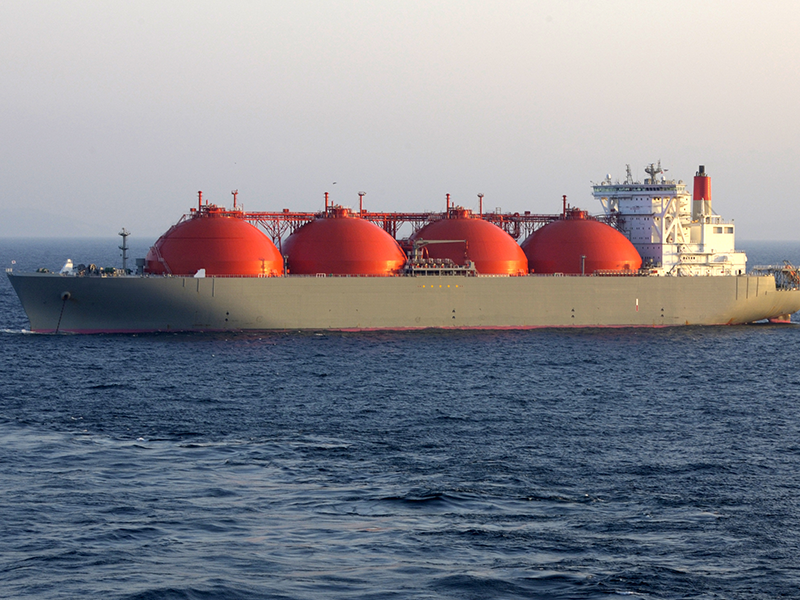Egypt is transitioning from an LNG exporter to a major importer, forcing some tough decisions about its gas future. The newly appointed Petroleum Minister, Karim Badawi, is actively managing increased LNG imports and engaging with international oil companies (IOCs) to boost domestic production.
The country is in the grip of its second gas crunch in a decade, with domestic demand fast outstripping its supply and forcing it to seek expensive LNG imports from global markets to fill the gap. Without major discoveries in the near future, Egypt will face the difficult choice of potentially putting aside its export history while laying the foundations as a key importer of East Mediterranean flows.
This week, Egyptian General Petroleum Corp. awarded a further five LNG shipments, taking its total imports to 22 cargoes after securing 17 last month for delivery between July and September. The cargoes were heard being awarded at a $1.50 per million BTU premium to the Dutch TTF, Europe’s benchmark gas hub. TotalEnergies and Swiss trader Gunvor were awarded cargoes. Spot LNG prices in southwestern Europe rose 40¢ this week to $10.80/MMBtu.
Leveraging its liquefaction infrastructure as an export hub for East Mediterranean gas was a central plank of Egypt’s pitch to IOCs, but increasingly, those flows look destined for the gas-hungry domestic market. Energy company executives in Egypt are wondering if Badawi will allow Egypt’s LNG export business to dwindle while making the strategic shift to become a major receiver of current and future East Mediterranean gas output and repurpose its export plants to receive imports. This would require IOC operators such as Shell at Idku and Eni at Damietta on the Mediterranean coast to accept a very different role to the export contracts they signed.
“Such a move risks a negative message that LNG exports are out of the picture but looks ahead to the long term, where East Med gas reserves primarily feed the Egyptian market,” said a former oil major executive. Badawi told parliament this month that one possible plan would be to use Idku and Damietta “in reverse.” The executive said this is technically feasible but requires investment and shutting the plants down during conversion work. (Shell declined to comment, while Eni had no comment by press time.) But Cairo will not be able to take unilateral action. At Idku, for example, it would need to gain permission from Shell as operator (35.5%), Petronas (35.5%), and TotalEnergies (5%); Egypt has only a combined 24% stake in project company Egyptian LNG.
East Med gas reserves are already targeting the Egyptian market. Israel plans to boost exports to Egypt through 2035—its energy regulator told Chevron in June that it may approve the export of an additional 118 billion cubic meters of gas from Israel’s 22 trillion cubic foot Leviathan field, a figure that could rise to 145 billion cubic meters in the future. In Cyprus, Chevron has earmarked flows from the 3.5 Tcf Aphrodite field for Egypt, while Cypriot Energy Minister George Papanastasiou, under domestic pressure to see first gas, is considering plans to monetize the island’s southern cluster of gas discoveries, with Egypt an obvious destination.
Escalating tensions in the Mideast, arising from Israel’s war in Gaza and a potential conflict against Hezbollah in Lebanon, are also forcing Egyptian policymakers to consider their overreliance on Israeli piped gas. The need to plan a formalized gas import infrastructure to put the country on a more stable footing is becoming apparent. Egypt is seeking a new import terminal and considering another shared facility at Aqaba in Jordan.
If war with Hezbollah starts, Egypt should expect supply interruptions, the former major executive said. Late last year, gas production from the Chevron-operated Tamar field in Israel was halted from early October until Nov. 13. Flows via the East Mediterranean Gas pipeline, which runs from Ashkelon in Israel to El-Arish in northern Egypt, resumed on Nov. 14. Over this period, Israel exported gas to Egypt via the Jordan-North Export Pipeline and the Jordanian transmission system, adding to transport costs.
In October and November, Egypt received approximately 84% of its contracted gas supply, according to NewMed Energy, Chevron’s Israeli partner. Israeli gas exports to Egypt increased from 4.9 Bcm in 2022 to 6.3 Bcm in 2023, while exports to Jordan remained steady at 2.7 Bcm. Egypt is currently looking for a third floating storage and regasification unit (FSRU) and is in discussions with Jordan about building a joint FSRU.

